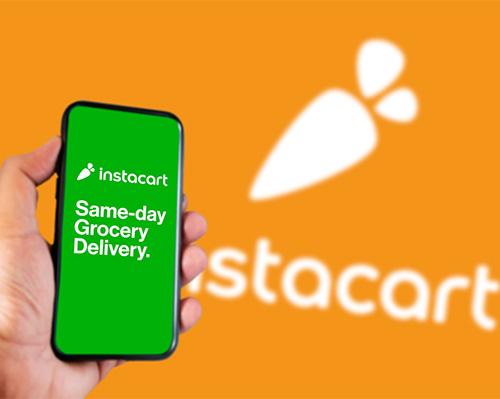Digitize, Monetize, Optimize: Instacart’s 2024 Mantra for Retailers
Technology has changed our daily habits and the way we shop.
In 2024, the most successful retailers will provide a seamless omnichannel experience that combines the best of online and in-store shopping, using data to make everything more personalized and drive growth.
Executives from Instacart shared their thoughts on emerging trends for grocers in 2024, stressing a crucial mantra: digitize, monetize, optimize.
Digitize
Everyone is a Digital Customer
In today's world, everyone is a digital customer. Retailers need a strong digital strategy, even if their primary business is in-store. Failing to engage with customers digitally means missed opportunities.
“In 2024, e-commerce is non-negotiable,” said Ryan Hamburger, VP of retail partnerships at Instacart. “Your digital strategy should be more than simply having an online storefront. The more you digitize, the more you can understand and serve your customers.”
Digital interactions give retailers opportunities to showcase unique offerings and convey value through experiential videos, customized branding, creative content, and more – engaging their customers, influencing purchase decisions, and earning loyalty.
Understand the Customers You’re Not Serving
Digitization across online and in-store helps retailers get a more holistic view of where they’re meeting customer needs – and where they’re not.
“Make sure you understand the customers you serve – and the ones you don’t,” Hamburger continued. “Which searches didn’t return relevant results? Which customers abandoned their cart? If you’re only looking at the customers you do serve, you risk getting stuck in a ‘filter bubble,’ leaving you unaware of the customers you might lose.”
Digitization is important for retailers to fully understand their customer base, enabling strategic decisions that lead to growth. By embracing digitization, they can break down silos, gain deeper insights into customer behavior, and identify untapped opportunities.
Monetize
Turn Data into Dollars
Retailers face a tough environment in 2024. Many things are out of retailers’ control – from inflation to cost of goods – but technology opens up opportunities they can control.
“Grocers have a wealth of data. Many have two or more touchpoints with the same customer each week,” said Alice Luong, director of market strategy & planning of e-commerce at Instacart. “If you’ve digitized your operations, you can reveal deeper insights into customer behavior and new opportunities to monetize your assets – like building a retail media network.”
As a bridge between brands and customers, retailers can drive affordability for customers, growth for brands, and build new revenue streams for themselves to reinvest in digital transformation – creating a flywheel effect.
"Digitizing the in-store experience presents even more new monetization opportunities for retailers to explore,” said Luong.
Drive Engagement in Stores
The impact of digitization is clear – the lifetime value of an omnichannel customer is two to four times higher than a single-channel customer.
In-store technologies like smart carts, self-checkout, and digital displays can help retailers create more personalized and engaging shopping experiences. More digital surfaces mean more opportunities to connect with customers – bringing the best of online shopping into stores and creating new opportunities to drive revenue too.
“Digitizing physical stores isn’t about disrupting the traditional retail experience – it's about augmenting it,” said Jeff Roland, director of market strategy & planning of connected stores at Instacart. “For example, why should personalized recommendations only be available online? Grocers have the opportunity to engage customers in stores through digital touchpoints like smart carts, creating a truly personalized experience that leads to revenue growth.”
Optimize
Improve Fulfillment Accuracy with AI
Fulfillment accuracy is incredibly important to the customer experience. People want to get what they ordered, on time. Data helps retailers optimize their operations to improve customer satisfaction.
“It’s time to stop thinking of pickup and delivery solely as convenience measures for customers,” said Nicole Schnuck, director of market strategy & planning of fulfillment at Instacart. “High quality fulfillment is core to your business, and it’s getting better and more efficient with AI – from route optimization to inventory management and item replacements.”
“There are more options available to retailers than ever before, and the right tech partner can help you create a flexible, resilient fulfillment flow that makes sense for your business and customers,” said Schnuck.
Don’t Wait to Innovate
The retail landscape is constantly evolving, and those who come out on top will embrace innovation and continuously be looking for ways to optimize their business. While there’s no one-size-fits-all approach, retailers that prepare for changing demands will enjoy the benefits of long-term growth.
“Technology that serves customers, changes buying behavior, and translates into more revenue for our retailers is worth meaningful investment,” Hamburger concluded.






